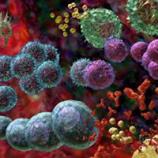psychiatry
The Concept of Delusion
“Based on the widely accepted DSM definition of delusions, delusions are commonly held to be false beliefs about reality that are not shared by the community the subject lives in and that are sustained despite overwhelming counter-evidence. In our paper, we argue that this conceptualization cannot be used for a scientific investigation of delusions. For this purpose, we argue, delusions should be defined as mental states with asymmetric inferential profiles: While they have inferential impact on other mental states, they are not affected by other mental states (especially not affected in a way that would lead to revision). This definition can be nicely captured in functional terms and summarized with the slogan that delusions are mental states that are immune to revision.” – Gottfried Vosgerau
On Cognitive Adaptation Training
Neuro-cognitive approaches to schizophrenia recovery are the new focus in clinical studies. Clearly, the negative symptoms of schizophrenia such as deterioration of executive functioning, lack of motivation, and impulsivity are frequently overlooked in research studies on schizophrenia treatment: “The way people usually understand schizophrenia is that it is about hallucinations and delusions, and that’s often the focus of treatment and medications,” says Dr. Sean Kidd, Clinician-Scientist in the Complex Mental Illness Program and Interim Psychologist in Chief in CAMH. “In fact, far greater challenges can happen due to cognitive difficulties in areas such as memory and attention, and the negative symptoms of schizophrenia: losing your momentum and drive, keeping organized. There’s very little attention to these very pressing concerns.” Deterioration of executive functioning, lack of motivation, and impulsivity are frequently overlooked largely due to thinking about schizophrenia that rules out cognitive and perceptual capacities.
Virgin Fantasy
…picturing the sublimity of Ascent, or Transcendence, the main feature of the sublime
Anomalous Self-Experience, a Core Feature of Schizophrenia
“This article explores the phenomenological and empirical rediscovery of anomalous self-experience as a core feature of the schizophrenia spectrum disorders and presents the current status of research in this field. Historically, a disordered self was considered to be a constitutive phenotype of schizophrenia. Although the notion of a disordered self has continued to appear occasionally over the years-mainly in the phenomenologically or psychodynamically oriented literature-this notion was usually considered as a theoretical construct rather than as referring to concretely lived anomalous experiences. Empirical research on the disorders of self-experience in schizophrenia can be traced back to the US-Denmark psychopathological collaboration in the well-known adoption and high-risk studies, which aimed at identifying trait or phenotypic vulnerability features. This research was later followed by clinical work with first-admission schizophrenia patients. We offer clinical descriptions of anomalous self-experience and outline the phenomenological structures of subjectivity that are needed for grasping the nature of these anomalous experiential phenomena. What appears to underlie these experiences is an instability of the first-person perspective that threatens the basic experience of being a self-coinciding, embodied, demarcated, and persisting subject of awareness. We summarize a series of empirical studies targeting self-experience in schizophrenia performed prior to and after the construction of a phenomenologically oriented psychometric instrument for assessing anomalies of self-experience, the Examination of Anomalous Self-Experience (EASE). These empirical studies support the classic clinical intuition that anomalous self-experiences form a central phenotype of schizophrenia. Implications for diagnosis and research are briefly discussed.” – Parnes J, Henriksen MG. Harv Rev Psychiatry 2014 Sep-Oct;22(5):751-65
Neuroplasticity in Schizophrenia
“Neuroplasticity underlies the declarative memory deficits associated with schizophrenia, possibly resulting in pathological hyperassociation and generation of false memories with psychotic content. The hypothesis…is consistent with well-established neuropsychological deficits observed in the illness, including abnormalities of declarative memory, a type of memory related to the conscious recall of facts and events (13).” – Robert E. McCullumsmith MD, “Evidence for Schizophrenia as a Disorder of Neuroplasticity” Am J Psychiatry 172:4 April 2015
Dissociation
Apart from organicity, dissociation is caused by psychic trauma and takes on a pathogenic quality when associated with memory disturbance.
“Mad In America” Report
Despite the introduction of effective pharmacological treatments and evidence-based psychosocial interventions, fewer than one in seven people affected are considered to meet criteria for recovery,” the authors write. “The possibility that the pathophysiology of schizophrenia involves mechanisms that progress over the longitudinal course of the illness is often assumed to explain the poor outcomes observed. Advocates for early intervention have embraced this paradigm… While progression of an active disease process would provide a compelling explanation for the poor outcomes so commonly observed, it is not consistent with what we have learned from modern studies of the longitudinal course of structural brain abnormalities, cognitive deficits and clinical outcomes associated with schizophrenia. –
Zipursky, Robert B., and Ofer Agid. “Recovery, Not Progressive Deterioration, Should Be the Expectation in Schizophrenia.” World Psychiatry 14, no. 1 (February 1, 2015): 94–96. doi:10.1002/wps.20194. (Full text)



